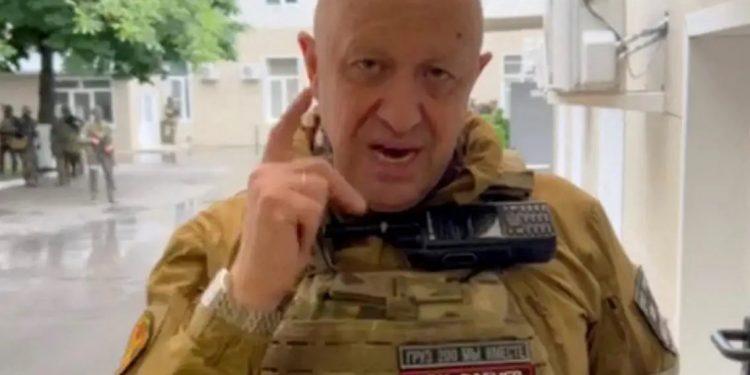The governor of Lipetsk region, Igor Artamonov, has officially acknowledged the presence of the Wagner Group and their movement of “equipment” through the region. Lipetsk is located between Voronezh and Moscow, with a distance of less than 400 kilometers to the capital city.
Earlier, a video shared on social media showed a convoy of armed vehicles belonging to Wagner moving through Lipetsk. In response, Governor Artamonov took to social media to assure the public that law enforcement agencies and authorities are taking necessary measures to ensure the safety of the population. He emphasized that the situation is under control and advised residents to remain indoors and avoid any unnecessary travel.
Reports from the ground are limited, but it appears that the Wagner troops are advancing northward towards Moscow. Witnesses observed Wagner mercenaries in the southern city of Rostov-on-Don earlier today. Subsequently, reports emerged about their presence in Voronezh, located 560 kilometers north of Rostov-on-Don. The governor of the Lipetsk region, situated north of Voronezh, has now confirmed the movement of Wagner troops through the area. It is important to note that the exact number of troops or the scale of the group spotted in Lipetsk remains unclear.
As the crisis unfolds in Russia, neighboring countries have responded with decisive actions. Latvia, which experienced an influx of Russian refugees during the Ukrainian war, has sealed its border with Russia. The Latvian Foreign Minister announced on Twitter that entry would not be granted to those seeking to leave Russia “due to current events.” Estonia has also heightened security along its border, with Prime Minister Kaja Kallas maintaining close communication with her counterparts in Latvia, Lithuania, and Finland.
Various other nations, including Poland, the UK, and the US, are closely monitoring the situation. The governor of the Kaluga region, bordering the Moscow federal area, has announced restrictions on road travel in the vicinity of neighboring regions, namely Tula, Bryansk, Oryol, and Smolensk. While there is no evidence suggesting the presence of Wagner mercenaries in Kaluga, the movement of Wagner troops toward Moscow remains apparent.
Yevgeny Prigozhin has corroborated media reports by confirming that a substantial amount of cash was discovered during raids on one of his offices conducted by Russia’s FSB security service. Prigozhin claims that the seized funds belong to the Wagner Group. In an audio message on his Telegram channel, he mentioned the discovery of one van and two buses loaded with money. According to Prigozhin, these funds were intended for compensating deceased Wagner fighters and covering other expenses. Although the exact amount remains undisclosed, earlier reports from Russian media suggested that 4 billion rubles had been found during an FSB raid on Prigozhin’s office in St. Petersburg.
Mayor Sergei Sobyanin of Moscow has issued a statement on Telegram declaring a “counter-terrorist operation regime” in the city. He also announced that Monday would be a non-working day to minimize risks and urged Muscovites to limit their movements within the capital. Mayor Sobyanin assured the public that city services are on high alert. Throughout the day, life in Moscow proceeded relatively normally, albeit with increased security measures, including roadblocks and the closure of certain bridges.


